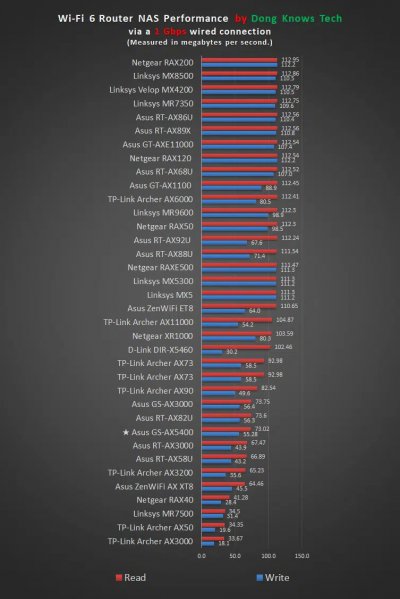rdst_1
Skilled
Hi,
I live in a small 1000 sq ft 3-floor house, out of which only the ground floor is occupied for now. I live at a farm so have no wifi interference issues that one usually faces in cities. I also have a 7000sq ft cow shed approx 100ft away from the house. Right now I am using a single band router - TP-Link 941HP which has a very good range which easily covers both, my house and shed and provides good enough speed for my measly 12Mbps internet connection.
I am currently installing 4-5 wireless cameras in the cow shed and since the speeds (according to the testing I have already done) for viewing the live streams is not upto the mark, I've thought of upgrading my network by spending the least possible money I can. So, I am looking to shift the current router to the shed to handle the cameras and then hardwire it with Cat-6 cable to a new home router that I want to buy. Current number of devices at the home are also just 4 - 2 phones capable of connecting to 5Ghz , a TV and a laptop. So need a router which provides basic functionality with good enough range on both bands and thinking of upgrading the laptop capabilities by purchasing a good dual band dongle for it, but only if those are reliable. Had also faced some issues playing content from the laptop OTA on the TV, so thinking that this upgrade might solve that issue as well. The laptop is around 20ft away the router with 1 wall in between and the TV is 7ft away with 1 wall in between.
I have perused the market and read a few articles on smallnetbuilder which have convinced me that I basically only need a basic router. A natural upgrade seems to be the TP-Link C58HP, a copy of my current router (but with dual bands) which has shown to have excellent range and reliability for me,but willing to give other options a try. Please advice based on your experiences.
TIA
I live in a small 1000 sq ft 3-floor house, out of which only the ground floor is occupied for now. I live at a farm so have no wifi interference issues that one usually faces in cities. I also have a 7000sq ft cow shed approx 100ft away from the house. Right now I am using a single band router - TP-Link 941HP which has a very good range which easily covers both, my house and shed and provides good enough speed for my measly 12Mbps internet connection.
I am currently installing 4-5 wireless cameras in the cow shed and since the speeds (according to the testing I have already done) for viewing the live streams is not upto the mark, I've thought of upgrading my network by spending the least possible money I can. So, I am looking to shift the current router to the shed to handle the cameras and then hardwire it with Cat-6 cable to a new home router that I want to buy. Current number of devices at the home are also just 4 - 2 phones capable of connecting to 5Ghz , a TV and a laptop. So need a router which provides basic functionality with good enough range on both bands and thinking of upgrading the laptop capabilities by purchasing a good dual band dongle for it, but only if those are reliable. Had also faced some issues playing content from the laptop OTA on the TV, so thinking that this upgrade might solve that issue as well. The laptop is around 20ft away the router with 1 wall in between and the TV is 7ft away with 1 wall in between.
I have perused the market and read a few articles on smallnetbuilder which have convinced me that I basically only need a basic router. A natural upgrade seems to be the TP-Link C58HP, a copy of my current router (but with dual bands) which has shown to have excellent range and reliability for me,but willing to give other options a try. Please advice based on your experiences.
TIA


